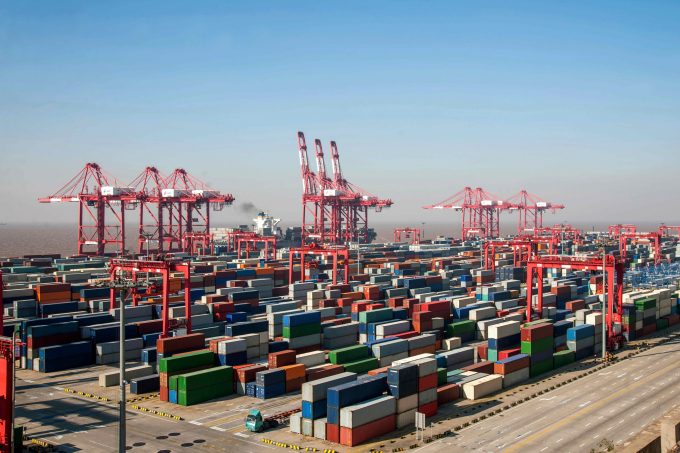APM Terminals' Aqaba operating concession extended to 2046
The Jordanian government has agreed to extend APM Terminal’s concession agreement at its key container ...
GM: RAISING THE ROOF GGM: IN FULL THROTTLE GZIM: MAERSK BOOST KNIN: READ-ACROSSMAERSK: NOT ENOUGHMAERSK: GUIDANCE UPGRADEZIM: ROLLERCOASTERCAT: HEAVY DUTYMAERSK: CATCHING UP PG: DESTOCKING PATTERNSPG: HEALTH CHECKWTC: THE FALLGXO: DEFENSIVE FWRD: RALLYING ON TAKEOVER TALKODFL: STEADY YIELDVW: NEW MODEL NEEDEDWTC: TAKING PROFIT
GM: RAISING THE ROOF GGM: IN FULL THROTTLE GZIM: MAERSK BOOST KNIN: READ-ACROSSMAERSK: NOT ENOUGHMAERSK: GUIDANCE UPGRADEZIM: ROLLERCOASTERCAT: HEAVY DUTYMAERSK: CATCHING UP PG: DESTOCKING PATTERNSPG: HEALTH CHECKWTC: THE FALLGXO: DEFENSIVE FWRD: RALLYING ON TAKEOVER TALKODFL: STEADY YIELDVW: NEW MODEL NEEDEDWTC: TAKING PROFIT

The disconnect between container ports and the industry that supplies its equipment could be partially bridged by a new joint initiative between the Federation of European Private Port Companies and Terminals (FEPORT) and the Port Equipment Manufacturers Association (PEMA).
The two groups are to form a joint working group to develop common standards across the terminal industry, which, despite the ubiquity of container technology, has for decades been plagued by complexity and different technical interfaces in different parts of the world.
Some operators have claimed that these variations are one of the causes of the failure of ports to improve productivity levels.
At this week’s Container Supply Chain conference in Rotterdam, APM Terminals chief operating officer Keith Svendsen said: “There has to be greater collaboration between shipping lines, ports and partners, and our suggestion is that we really have to work on standards as an industry so that we don’t see an increase in complexity just for the sake of it.
“There are many other industries that have solved the fundamental problem of complexity, and we can learn from them.
“However, there can be no progress until a terminal operator takes responsibility for making it happen, because as it is suppliers are expected to reinvent the same thing over and over and that is because there are no common standards – of processes and operational interfaces.”
Frank Kho, a port industry veteran who has been appointed to oversee the newly established Feport-Pema Terminal Industry Committee 4.0 (TIC 4.0), said: “There was the first meeting between the two groups last month and that was the first time in 30 years that terminal operators and suppliers have sat round the same table talking about standards.
“We soon realised that we didn’t have a common language, and that is the aim of the TIC 4.0,” he said.
Areas to be discussed include the development of Internet of Things, Artificial Intelligence and further technological innovations in the sector.
A joint statement said: “The first objective of TIC 4.0 will be to delineate a corpus of definitions regarding concepts and technical terminology that are specific to the container handling industry, as most of the terminology currently used in the sector remains subjective.
“This first step will facilitate comparatives about technical specifications for equipment, bring about objective measures of performance of equipment and constitute an important milestone towards the elaboration of standards for the industry to achieve further efficiencies.”
Mr Kho added: “For example, we realised we didn’t even have a standard way of gauging fuel consumption, so the very first thing we are going to do is establish a standard way of measuring fuel consumed per metre.”
Comment on this article